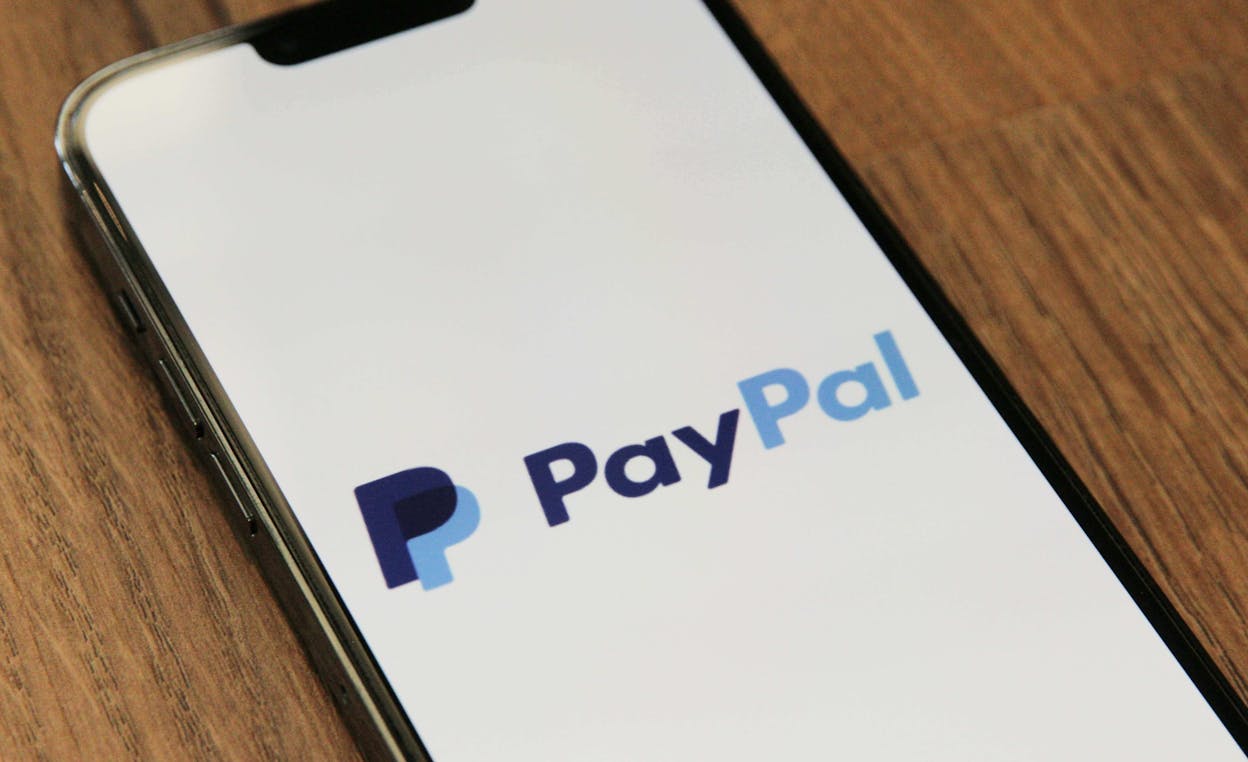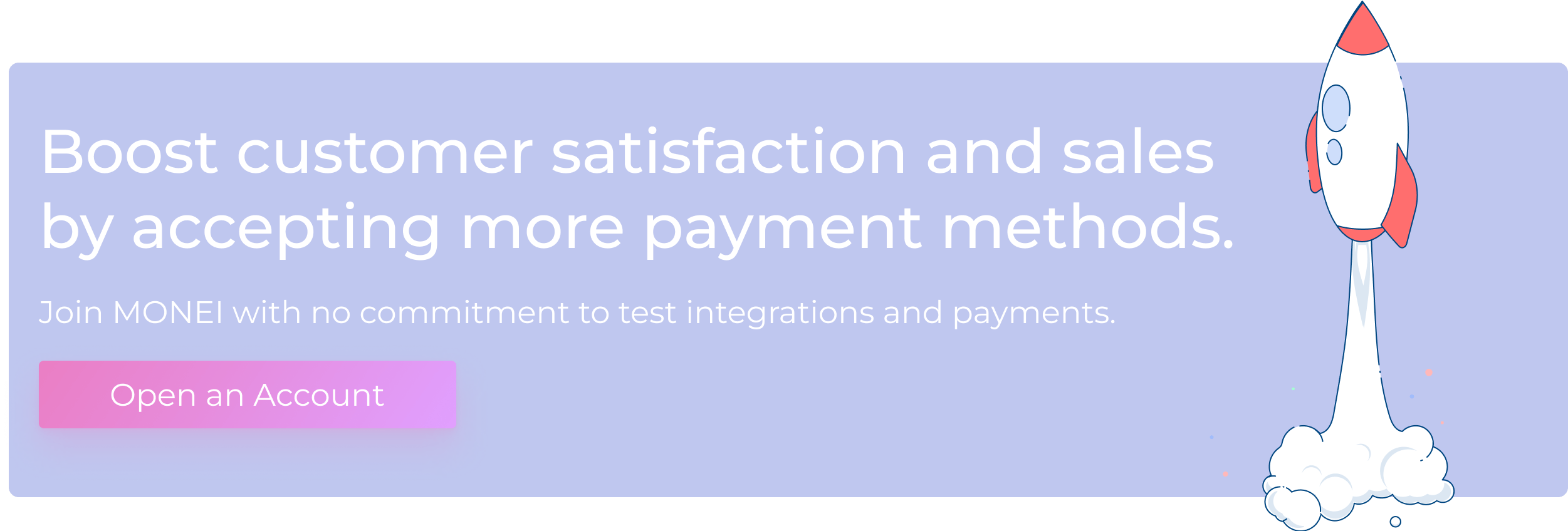Is PayPal a Secure Payment Method for merchants & customers?

PayPal has more than 429 million active users and is still the most popular digital wallet in the world but before you accept it as a payment method, you need to know: is PayPal secure? The simple answer is yes, especially if you use it with a secure payment gateway like MONEI to mitigate risks.
In this article, you’ll learn whether PayPal is safe for you and your customers, the different types of PayPal transactions available, which security measures PayPal has, and the risks you need to be aware of. More importantly, you’ll discover how to protect your business and customers from PayPal security risks.
Table of contents
- Is PayPal safe for merchants and customers?
- What are the different types of PayPal transactions?
- What security features does PayPal have?
- Risks of using PayPal
- Is it safe to link a credit card or a bank account to PayPal?
- How to deal with PayPal scams
- How to protect your business and customers from PayPal security risks
- Collect secure PayPal payments with MONEI
Is PayPal safe for merchants and customers?
PayPay is known to be extremely safe for merchants and customers in e-commerce. All transactions use advanced data encryption and seller protection protocols are in place to prevent fraudulent activity. As long as your customers have a secure connection to PayPal’s legitimate website, their personal data should be safe too.
Let’s look at the protective measures you and your customers can rely on:
- Seller protection. If there’s an unauthorized transaction, chargeback, reversal, or fraudulent buyer claim, you’re protected by PayPal’s Seller Protection program.
- Fraud monitoring. Every transaction has automatic alerts on suspicious activity with 24/7 fraud monitoring.
- No bank accounts or card numbers needed. Processing transactions only requires a username and password.
- Fraud prevention. If you notice suspicious activity, you can contact PayPal directly.
- Disputes. Transactions are put on hold until the issue is resolved.
- Customers’ full financial information is never shared. You don’t get to see your customers’ full financial information, so they can feel secure too.
- Purchase protection program. Customers are protected against faulty damaged, or undelivered products, which makes them feel safer using PayPal.
What are the different types of PayPal transactions?
PayPal transactions for sending and receiving money are either between friends and family or for products and services. When someone sends money abroad, pays for their share of dinner, or buys a gift card, they can be determined as personal transactions and are often free. When a customer pays you for your products or services, you pay the transaction fee.
Both transaction types are secure but you need to pay attention to the payment method you choose. Yes, you can avoid fees by using payments from friends and family but we don’t recommend it. Not only are you violating PayPal’s User Agreement, but you’re also opening yourself up to scams. PayPal only protects product and service transactions! If you accept payments using friends and family, you won’t be protected against unauthorized transactions or fraudulent claims.
📌 Pro Tip: Save money on transaction fees with MONEI. As you sell more your transaction fees will decrease in real-time, thanks to our dynamic pricing model. You’ll have more money to reinvest in your business and grow. Get started ››
What security features does PayPal have?
End-to-end encryption is one of many security features that PayPal puts in place to keep you and your customers safe. Here are some of the rest:
- Browser integrity. PayPal makes sure your customers’ browsers can send data securely. If they violate any security standards, they won’t be able to access their accounts.
- Data encryption. To protect all transactions, PayPal uses 128-bit data encryption Secure Sockets Layer (SSL) protocol technology.
- Fraud monitoring. A team of security specialists identifies suspicious activity by monitoring every transaction 24/7, which helps to prevent fraudulent transactions, email phishing, and potential fraud.
- Security key. Your customers have the option of requiring two-factor authentication (2FA) and they have to create a long, unique password. 2FA adds a layer of protection, even if someone does access your customers’ passwords by generating a one time PIN code that’s sent to their registered phones every time they log in.
- Seller protection. With proof that a transaction meets PayPal’s requirements, you’re protected against false claims and chargebacks.
- Purchase protection. If a customer receives a product that doesn’t meet expectations, PayPal offers a full refund, including shipping costs. The product must be significantly different from its description, damaged, or undelivered to meet the refund eligibility.
Risks of using PayPal
Although PayPal is secure, there are risks to consider. Popularity is wonderful in business but it also makes you a target for dangerous hackers, criminals and other scammers. After all, PayPal hosts a lot of sensitive data. Phishing and identity fraud are the most common threats.
Scammers are often looking for personally identifiable information (PII) to help them commit identity theft or to take over your customers’ accounts. This allows them to make fraudulent purchases with businesses like yours. They use phishing scams, which get users to click on malicious links and trick users into handing over their login details.
One particularly common scam asks users to resolve an issue with their account. They send an email with a link to a fake, pharming website that looks almost identical to the real PayPal but is actually controlled by the scammer. As soon as your customer hands over their details, the scammer can log into their account.
According to PayPal, your customers need to look out for the following red flags:
- Personal information requests. Your customers need to be wary straight away if an email is asking for personal information. PayPal never asks for account information, passwords, credit card numbers, validation codes, or any other personal information by email, text, or phone.
- Fake URLs. It’s vital to check any URL. Is the spelling of the company name correct? Is the email from a domain other than PayPal? If your customer is suspicious, they shouldn’t click the link.
- Dear sir/madam greetings. If you get an email that doesn’t use your full name, it’s not from PayPal.
- Poor grammar. If there are a lot of typos, spelling mistakes, and incorrect grammar in your messages, they’re probably not from PayPal.
- Viruses disguised as attachments. Your customers shouldn’t open an attachment unless they’re 100% sure it’s from PayPal because if it’s fake, it could contain a virus or other malware.
- False urgency. “CLICK HERE NOW TO SAVE YOUR ACCOUNT!” If your customer receives a message suggesting their account is being compromised, they should ignore any links and go directly to the PayPal application or the website.
Is it safe to link a credit card or a bank account to PayPal?
Your customers can link their credit card or bank account to PayPal securely but they’re better off using their credit cards to pay online. Linking directly to a bank account exposes them to a high risk if someone breaks into their account.
Credit cards offer extra fraud protection policies to protect your customers against unauthorized transactions, including any made from a PayPal account. Many credit cards also come with zero-liability protection, so customers often receive a full refund from fraudulent transactions.
💡 Conversion Rate Optimization Tip: Payment methods like Apple Pay, Google Pay, and Click to Pay all use tokenization to securely store customers’ sensitive payment information. This way, they can quickly check out without ever sharing their card details with a business. Sign up for MONEI to accept these popular digital wallets and increase conversions.
How to deal with PayPal scams
PayPal protects purchases against scams if they’re reported within 180 days and your customers get a full refund if they meet the purchase protection eligibility. They need to report the problem on the platform, block any accounts linked to their profile, and let any relevant entities know.
Yet, the best way to protect your customers from scams is prevention. Advise them to only go to your official e-commerce website, to check their account regularly for any unusual transactions, and to make sure any other purchases they make are on secure websites, protected with https.
It’s often worth making sure they have up-to-date anti-virus software, to only make purchases if they have a secure Wi-Fi connection, and to use a VPN.
How to protect your business and customers from PayPal security risks
You can protect your customers by using a payment processor with added layers of security, like MONEI, that encrypts and transmits payment data to an acquiring bank. Make sure the payment gateway you use has 3D Secure 2.0, and that it’s PSD2 and PCI DSS Level 1 compliant for secure payments.
MONEI also makes it easy for customers to pay using payment links, QR code payments, local payment methods like Bizum, and other digital wallets, like Google Pay and Apple Pay. This means your customers have multiple payment options with the extra security MONEI offers.
📌 Start Now: Use MONEI to accept a wide range of popular local payment methods from a single platform. With one integration you can add payment options like Bizum, Multibanco, and more to your store. Skip the headache of setting up local acquiring in each of the countries you want to sell to.
Collect secure PayPal payments with MONEI
PayPal is secure if you collect secure PayPal payments with MONEI, so start today. Remember, accepting PayPal through MONEI gives you the opportunity to accept alternative payment methods too. This keeps your customers happy and helps your business to grow.
Is PayPal secure FAQ
Will PayPal cover me if I get scammed?
Your customers get Purchase Protection from PayPal. This covers them in the event of a product that doesn’t turn up, it’s damaged, or it doesn’t match the description. You also get seller protection to protect against fraudulent claims. As long as you can prove you met their requirements, you won’t have to pay any false chargebacks.
Can hackers steal money through PayPal?
PayPal is safe and has robust security measures in place but it is possible for hackers to steal money if they get unauthorized access to a customer’s account. That’s why they need to regularly monitor their account and it’s better for you to accept payments through a payment gateway like MONEI with extra layers of security.
What is the safest way to receive money from a buyer?
The safest way to receive money from a buyer is with a payment processor like MONEI. Your customers get a choice of multiple payment options and you get the reassurance that all of your transactions are protected with 3D Secure 2.0, PSD2 and PCI DSS Level 1 compliance.
How can you tell a PayPal scammer?
Scammers are becoming more cunning all the time, so your customers need to take extra care. They should look out for messages directed to a generic name and have bad grammar, that ask for personal information or link to fake urls, that include dodgy looking attachments, or that create a false sense of urgency.
MONEI
MONEI is the leading omnichannel payments platform in Southern Europe.

